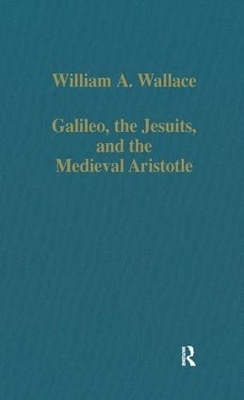
Galileo, the Jesuits, and the Medieval Aristotle
Variorum (Verlag)
978-0-86078-297-1 (ISBN)
William A. Wallace is Emeritus Professor of Philosophy and History of Science, The Catholic University of America, Washington DC, USA
Contents: Aristotelian influences on Galileo's thought; The problem of causality in Galileo's science; Aristotle and Galileo: the uses of hypothesis (suppositio) scientific reasoning; Galileo and Aristotle in the Dialogo; Randall redivivus: Galileo and the Paduan Aristotelians; The early Jesuits and the heritage of Domingo de Soto; The problem of apodictic proof in early 17th-century mechanics: Galileo, Guevara, and the Jesuits; Science and philosophy at the Collegio Romano in the time of Benedetti; Albertus Magnus on suppositional necessity in the natural sciences; The scientific methodology of St Albert the Great; St Thomas's conception of natural philosophy and its method; Aquinas on the temporal relation between cause and effect; Thomas Aquinas on dialectics and rhetoric; Aristotelian science and rhetoric in transition: the Middle Ages and the Renaissance; The intelligibility of nature: a neo-Aristotelian view; Index.
| Erscheint lt. Verlag | 27.10.1991 |
|---|---|
| Reihe/Serie | Variorum Collected Studies |
| Sprache | englisch |
| Maße | 150 x 224 mm |
| Gewicht | 816 g |
| Themenwelt | Geisteswissenschaften ► Philosophie ► Philosophie Altertum / Antike |
| Geisteswissenschaften ► Philosophie ► Philosophie des Mittelalters | |
| Naturwissenschaften | |
| ISBN-10 | 0-86078-297-2 / 0860782972 |
| ISBN-13 | 978-0-86078-297-1 / 9780860782971 |
| Zustand | Neuware |
| Haben Sie eine Frage zum Produkt? |
aus dem Bereich


